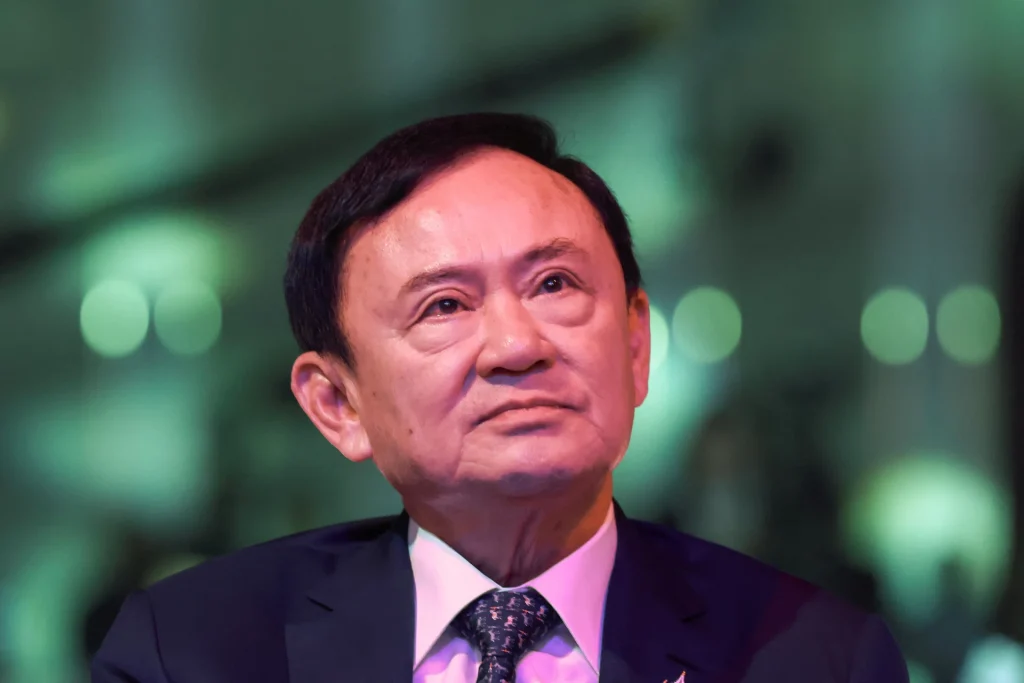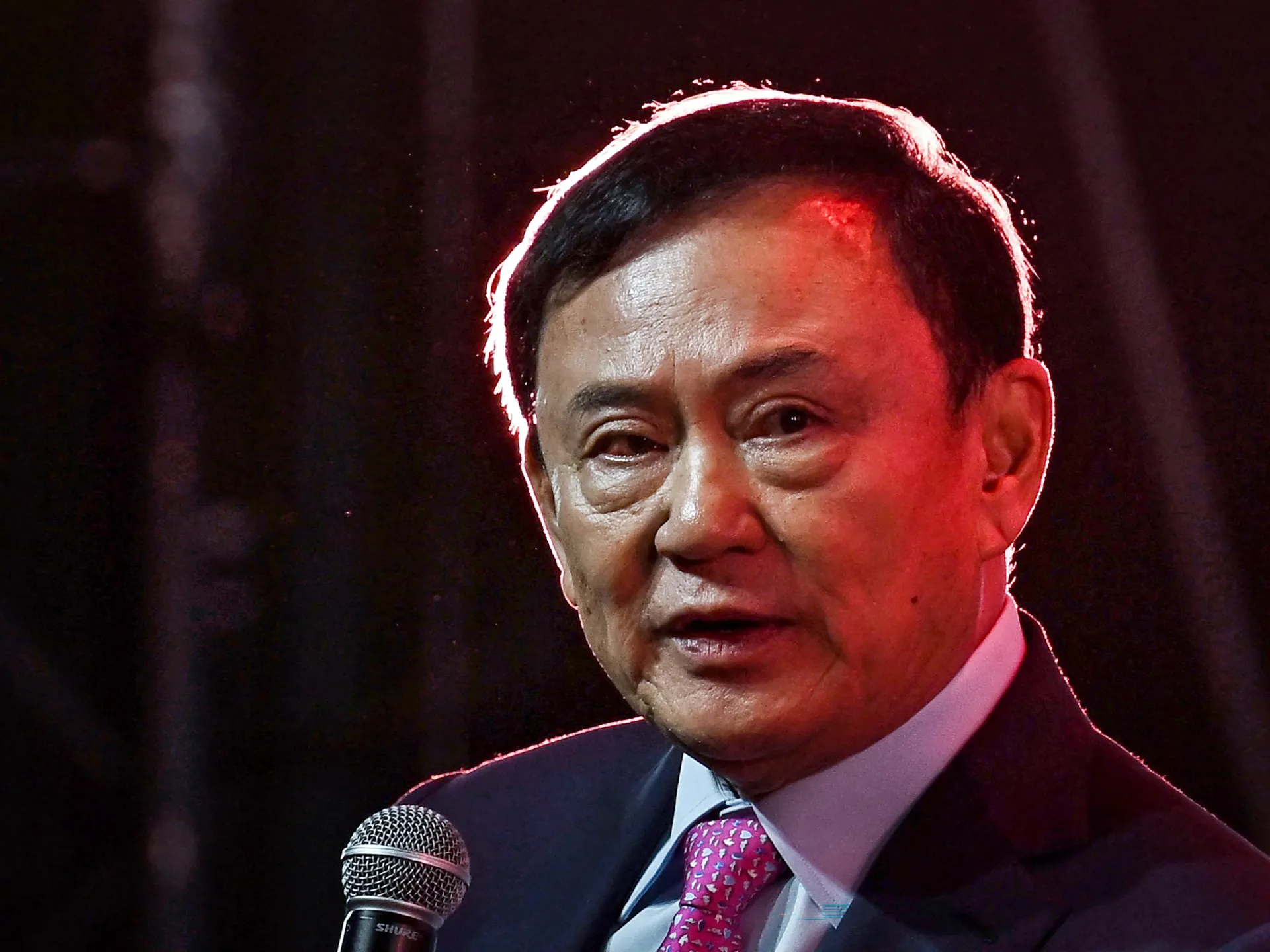Former Thai Prime Minister Thaksin Shinawatra appeared in court on Wednesday to defend himself against charges of royal defamation, a critical case for his politically struggling family.
If convicted in the closed-door Bangkok trial, Shinawatra faces up to 15 years in prison under Thailand’s strict lese-majeste laws, which protect the royal family from criticism.
The 75-year-old telecoms tycoon has been a pivotal figure in Thai politics for the past 25 years, establishing a political dynasty that has consistently clashed with the country’s traditional pro-royal and pro-military elite.
However, analysts suggest that his current prosecution, coupled with the recent suspension of his daughter, Prime Minister Paetongtarn Shinawatra, marks a dramatic downturn in their family’s political fortunes.
The prosecution’s case centres on remarks Thaksin made to South Korean media a decade ago. His lawyer, Winyat Chatmontri, confirmed that Thaksin testified throughout the morning and would continue for the rest of the day, with a verdict scheduled for August 22.
Approximately 50 of Thaksin’s supporters, wearing red shirts emblazoned with his portrait, gathered outside the courthouse. “He is a very talented guy,” said 79-year-old Vaew Wilailak, a retired accountant, adding, “But from experience, bad people just want to get rid of him.”
Return from Exile and Political Manoeuvres
Thaksin returned to Thailand in August 2023 after 15 years in self-imposed exile, which began following a military coup that removed him from the premiership he had twice won through elections.
His return coincided with his family’s Pheu Thai party taking office at the head of a coalition government supported by their former conservative rivals, fueling speculation of a behind-the-scenes agreement.
Upon his return, Thaksin was immediately sentenced to eight years in prison on corruption and abuse of power charges. This sentence was later reduced to one year by a royal pardon from King Maha Vajiralongkorn.

Despite this, political analyst Yuttaporn Issarachai noted, “There is always someone within the establishment who sees him as a threat to Thai society.”
In recent interviews, Shinawatra has reaffirmed his loyalty to the monarchy and expressed gratitude for the royal pardon. His lawyer described him as appearing “chill” on the trial’s opening day on July 1, despite the gravity of the charges.
Daughter’s Suspension and Political Fallout
On the same day as Shinawatra’s trial opening, his daughter, Paetongtarn, was suspended by the Constitutional Court pending an ethics investigation.
The probe stems from a leaked diplomatic phone call concerning a deadly border clash between Thailand and Cambodia. In the call, Paetongtarn reportedly addressed former Cambodian leader Hun Sen as “uncle” and referred to a Thai military commander as an “opponent.”
This sparked backlash, with critics accusing her of deferring to a foreign statesman and undermining her own country’s military.
Following the call, key conservative backers abandoned Pheu Thai’s coalition, leaving it with a precarious parliamentary majority led by a caretaker prime minister.
On Wednesday, Thailand’s parliament rejected a draft amnesty bill in its first reading that would have released over 30 individuals imprisoned for royal defamation.
According to Thai Lawyers for Human Rights, at least 280 people have been prosecuted under the kingdom’s strict lese-majeste law since 2020, which carries a maximum sentence of up to 15 years per offence.


 Trending
Trending 